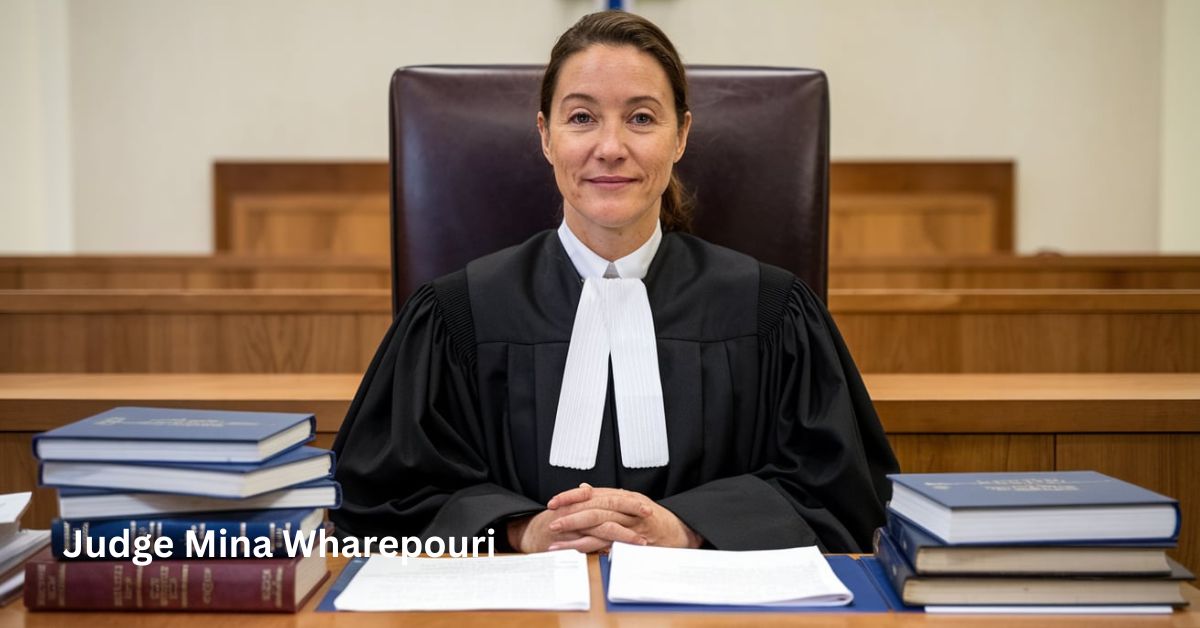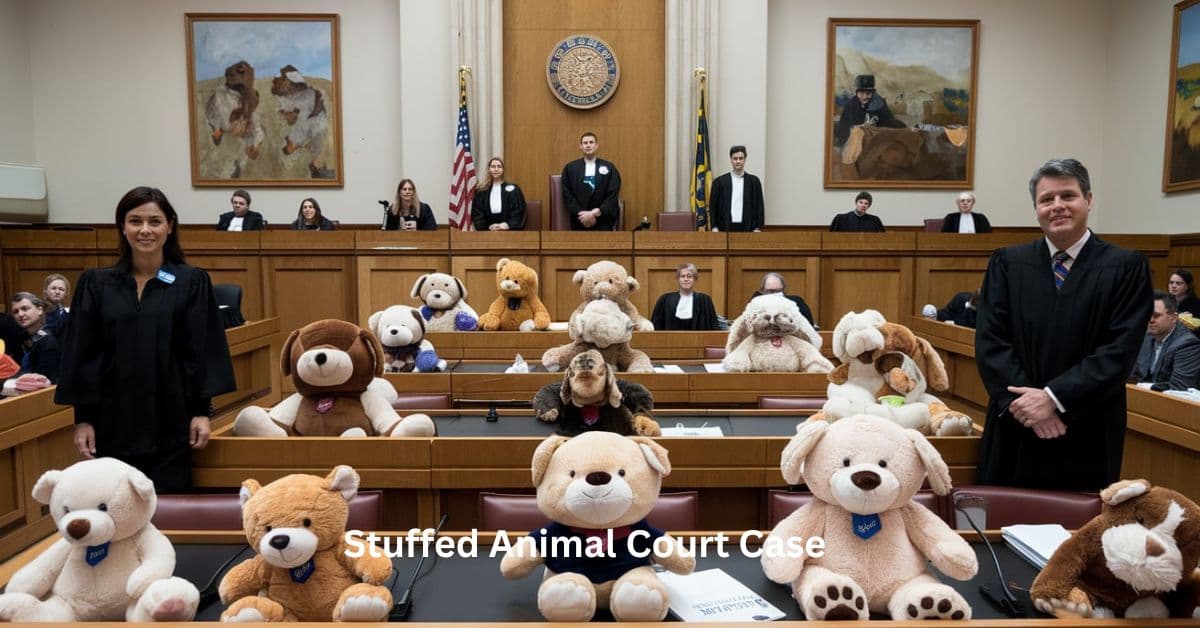Judge Mina Wharepouri: A Trailblazer in Advocacy for Marginalized Communities

Judge Mina Wharepouri is a prominent legal figure who has made significant contributions to justice, particularly in advocating for marginalized communities. Her career has been marked by a commitment to ensuring equality and fairness in the legal system. While much of her work centers on legal practice, her passion for social justice and efforts to reform the system stand out. This article provides an in-depth look at Judge Wharepouri’s career, focusing on her advocacy, her contributions to law, and how her work has influenced broader social justice movements.
This article aims to go beyond the typical biographical content available online by offering a more detailed analysis of her influence, values, and vision for a fairer judicial system. As such, it is tailored to provide insights for readers in the United States and those looking for easy-to-understand, SEO-optimized content.
Early Life and Education
Judge Mina Wharepouri’s upbringing played a crucial role in shaping her passion for justice and her commitment to advocacy. Growing up in a diverse community exposed her to the unique challenges faced by marginalized individuals, inspiring her desire to pursue law as a career.
Her Path to Law
After completing her undergraduate degree, Wharepouri attended law school, where she developed a deep understanding of the systemic inequalities present in the justice system. She focused on human rights and constitutional law, subjects that would later influence much of her work.
Wharepouri’s legal education was not just about learning the law but also understanding how it affects different segments of society. She excelled in legal clinics, where she worked on cases involving underrepresented communities, gaining first-hand experience of the issues that would become her focus as a judge.
Career Beginnings: Legal Practice
After completing her education, Judge Mina Wharepouri began her legal career as a defense attorney, working primarily on cases involving underprivileged individuals. Her early career was marked by her advocacy for those who often didn’t have access to high-quality legal representation. These experiences deepened her commitment to making the justice system accessible to everyone, regardless of socio-economic background.
Defending the Vulnerable
One of her first high-profile cases involved a client facing significant legal obstacles due to racial and economic biases. Wharepouri’s meticulous defense and keen understanding of the law led to a favorable outcome, earning her respect in the legal community and setting the tone for the rest of her career.
Becoming a Judge: A Historic Appointment
When Mina Wharepouri was appointed as a judge, it was a significant milestone. Her appointment was seen as a step forward for inclusivity in the judiciary, particularly for marginalized communities. She is among a growing number of judges who bring diverse perspectives to the bench, helping to bridge the gap between legal institutions and the communities they serve.
A Voice for the Voiceless
Judge Wharepouri’s appointment was particularly celebrated by advocacy groups who have long called for more diversity in the judicial system. Her background and career reflected her ability to understand and empathize with the struggles of everyday people, making her a valuable asset to the bench.
Judge Mina Wharepouri’s Advocacy for Marginalized Communities
Judge Mina Wharepouri’s most notable work revolves around her advocacy for marginalized communities. She has consistently used her platform to promote equality and justice for groups that have historically been excluded from the legal process.
Key Areas of Advocacy
Her work focuses on a range of issues affecting marginalized communities, including:
- Racial Discrimination in the Legal System: Wharepouri has long been a critic of systemic racism in the judicial system. She has worked on initiatives aimed at reducing racial disparities in sentencing and has been a strong advocate for reforms that make the legal system more equitable for people of color.
- Gender Equality: Wharepouri is also a vocal supporter of gender equality, especially within the legal profession. She has mentored many young female lawyers and judges, emphasizing the importance of gender representation in the judiciary.
- LGBTQ+ Rights: As an ally of the LGBTQ+ community, Judge Wharepouri has made strides in advocating for legal reforms that protect LGBTQ+ individuals from discrimination. She has presided over several landmark cases that have strengthened legal protections for this community.
- Economic Disparities: Judge Wharepouri has also focused on the intersection between poverty and justice. She believes that economic inequality often leads to unequal access to legal resources, and she has worked to address these disparities through various legal aid initiatives.
Her Role in Judicial Reforms
Judge Mina Wharepouri’s influence extends beyond her own courtroom. She has been a driving force behind several judicial reforms aimed at making the legal system more transparent and accessible. Some of her most impactful work includes:
Reforming Sentencing Guidelines
One of Judge Wharepouri’s significant contributions is her work in reforming sentencing guidelines, particularly for non-violent offenders. She has advocated for alternative sentencing options, such as community service and rehabilitation programs, instead of incarceration. Her efforts have been instrumental in reducing the prison population and helping individuals reintegrate into society.
Strengthening Legal Aid Services
Judge Wharepouri has also been involved in initiatives to strengthen legal aid services for low-income individuals. She believes that everyone, regardless of their financial situation, should have access to quality legal representation. Her efforts have led to increased funding for legal aid programs and expanded services in underserved communities.
Unique Perspectives on Law and Justice
What sets Judge Mina Wharepouri apart from many of her peers is her holistic approach to justice. She views the law not just as a set of rules to be followed but as a living system that must evolve to meet the needs of society.
A Restorative Justice Advocate
Judge Wharepouri is a strong proponent of restorative justice, a legal approach that emphasizes repairing the harm caused by criminal behavior rather than focusing solely on punishment. She has incorporated restorative justice practices into her courtroom, particularly in cases involving juvenile offenders. By focusing on rehabilitation and reconciliation, she believes that restorative justice can reduce recidivism and create healthier communities.
Humanizing the Legal Process
One of the criticisms often levied against the judicial system is its lack of empathy. Judge Wharepouri has worked hard to humanize the legal process by ensuring that individuals feel heard and understood. Whether she is dealing with a defendant, a victim, or a family member, she treats each person with dignity and respect. This approach has earned her the trust of the community and made her a respected figure both inside and outside the courtroom.
Judge Mina Wharepouri’s Contributions to Legal Education
In addition to her work on the bench, Judge Mina Wharepouri has made significant contributions to legal education. She regularly lectures at law schools, sharing her insights and experiences with the next generation of lawyers. Her lectures often focus on the importance of public service and the need for lawyers to be advocates for social change.
Mentorship and Leadership
Wharepouri is also known for her mentorship of young lawyers, particularly those from underrepresented backgrounds. She has helped guide many aspiring legal professionals, offering them the support and encouragement they need to succeed in a competitive field. Her commitment to nurturing future leaders in the legal profession ensures that her impact will be felt for generations to come.
Challenges and Controversies
Like many public figures, Judge Mina Wharepouri has faced her share of challenges and controversies. Her outspoken stance on certain issues has sometimes made her a target for criticism. However, she has always maintained that her primary obligation is to justice, not popularity.
Balancing Activism and Judicial Impartiality
One of the challenges Judge Wharepouri has faced is balancing her activism with the need for judicial impartiality. Critics have argued that her advocacy work could bias her decisions on the bench. However, she has consistently maintained that her personal beliefs do not interfere with her ability to administer the law fairly. In fact, many of her supporters argue that her activism only enhances her ability to understand the issues faced by those who come before her in court.
Legacy and Future Prospects
As a judge, Mina Wharepouri has already left a lasting legacy in the legal world. Her commitment to justice, equality, and fairness has made her a role model for both legal professionals and social justice advocates alike. Looking forward, her influence will likely continue to grow as she works on new initiatives aimed at improving the legal system.
Expanding Her Influence
There is much speculation about Judge Wharepouri’s future prospects. Some believe that she could be a strong candidate for higher judicial positions, possibly even a seat on a supreme court. Regardless of where her career takes her, there is little doubt that she will continue to be a powerful voice for change in the legal system.
FAQs about Judge Mina Wharepouri
Q: What is Judge Mina Wharepouri known for?
A: Judge Mina Wharepouri is known for her advocacy for marginalized communities, particularly in areas such as racial discrimination, gender equality, and LGBTQ+ rights. She has also played a significant role in judicial reforms aimed at making the legal system more accessible and equitable.
Q: What are some of Judge Mina Wharepouri’s key contributions to the legal system?
A: Some of her key contributions include her work on sentencing reform, her advocacy for restorative justice, and her efforts to strengthen legal aid services for low-income individuals.
Q: How has Judge Wharepouri influenced judicial reforms?
A: She has been a driving force behind reforms such as changing sentencing guidelines for non-violent offenders and expanding legal aid services. Her work has been instrumental in making the justice system more fair and accessible to all.
Q: What is Judge Mina Wharepouri’s stance on restorative justice?
A: Judge Wharepouri is a strong advocate of restorative justice, believing that it helps reduce recidivism and fosters reconciliation between offenders and victims.
Q: Has Judge Mina Wharepouri faced any controversies?
A: Yes, she has faced criticism from some who argue that her activism could bias her judicial decisions. However, she has always maintained that her advocacy work does not interfere with her ability to administer justice impartially.
Q: What is next for Judge Mina Wharepouri?
A: While there is much speculation about her future, many believe that she may pursue higher judicial appointments. Regardless, her influence on the legal system will likely continue to grow.










